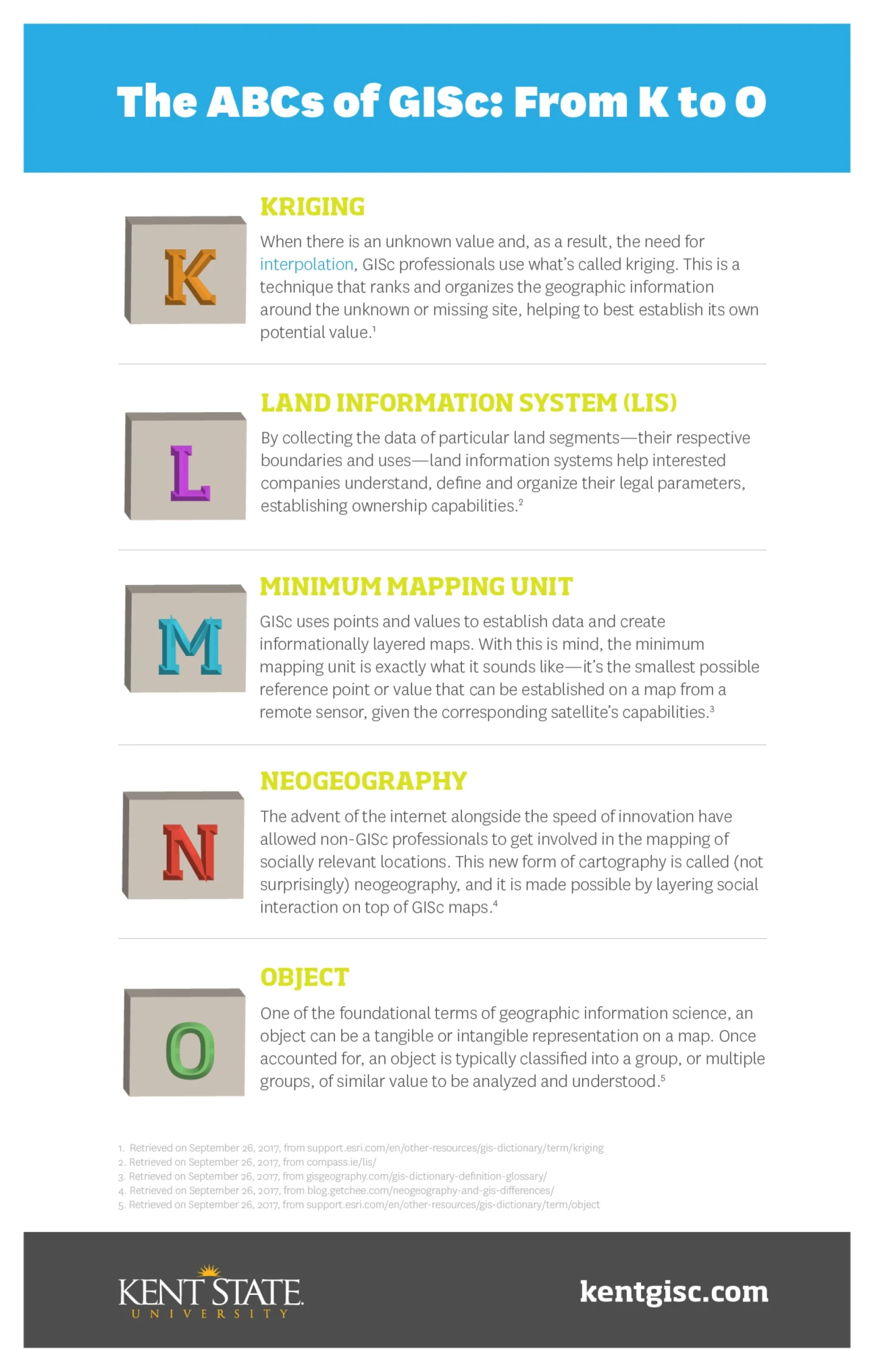Helping You Articulate Geographic Information Science
A definition. For all practical purposes, it’s the concise explanation of an element or experience. However, the true value of a definition extends far beyond this. What it also provides is the foundation for further knowledge—and this is critically important.
While it may sound self-explanatory, it’s vital to remember the definitions that live at the heart of any subject are the basis upon which one can build their ability.
With this in mind, we’re providing those interested in geographic information sciences (GISc) with a glossary of terms that can help them build a foundation of understanding in the field. In part one, letters A through E were explored, and in part two, letters F through J.
Now, as the middle of the alphabet is covered, you may be able to start making connections between certain terms and see how they are interconnected within the world of GISc.
As technology continues to progress and change, so does the language surrounding it. Essentially, that means the GISc dictionary is not static—it’s a constantly evolving entity. The terms in this series are meant to provide a starting point for those looking to join the GISc conversation. So, take these and build on them as you go!
If you’re invested in discovering more about GISc, don’t wait idly by for the next glossary installment—learn more about what it takes to work in the field, or check out some of what’s going on in the industry now.





